The Social Activity Day, organised by Karabük University Faculty of Letters on Wednesdays every week, brought together academicians, students and guests for an important presentation this week.
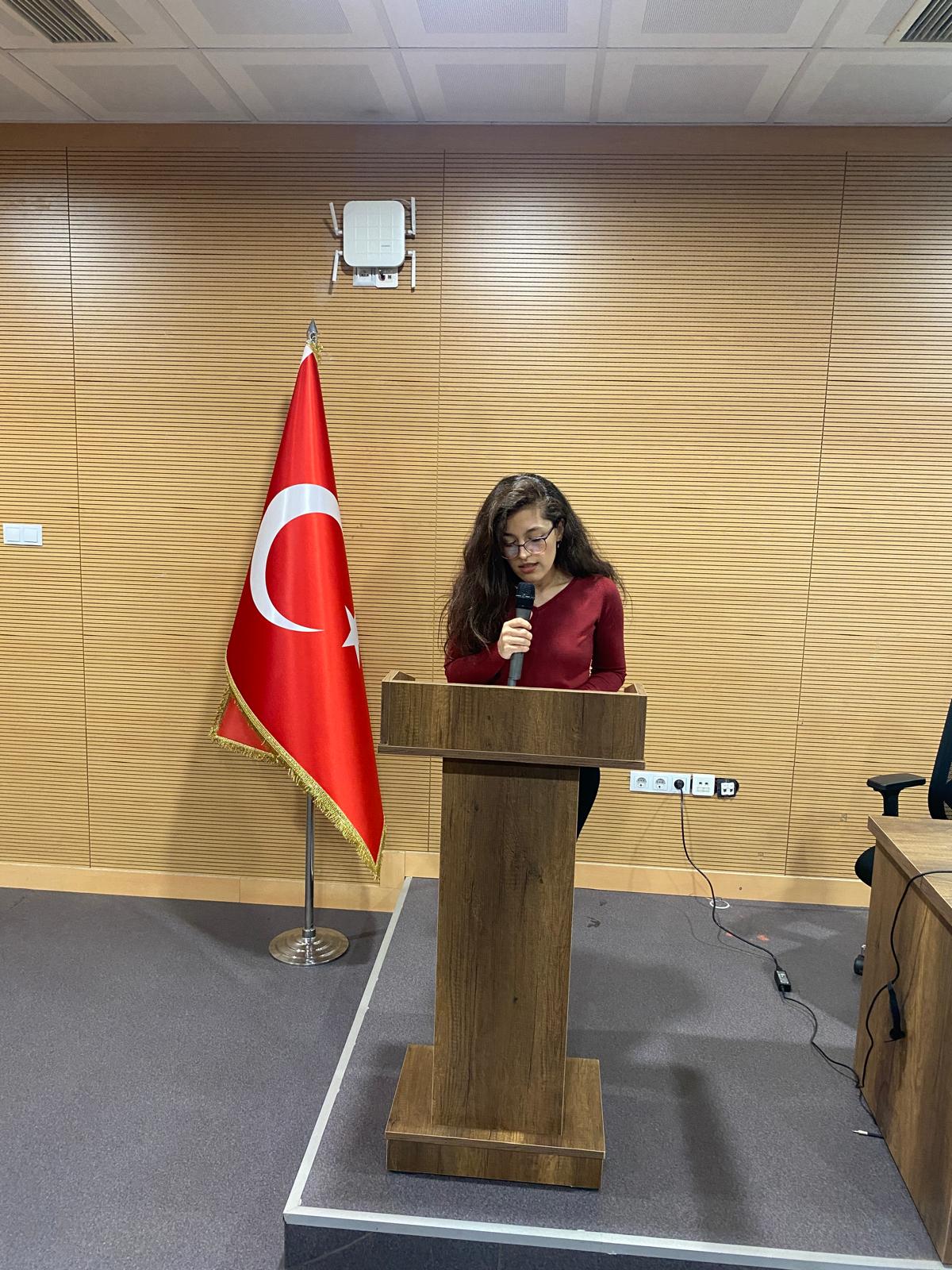
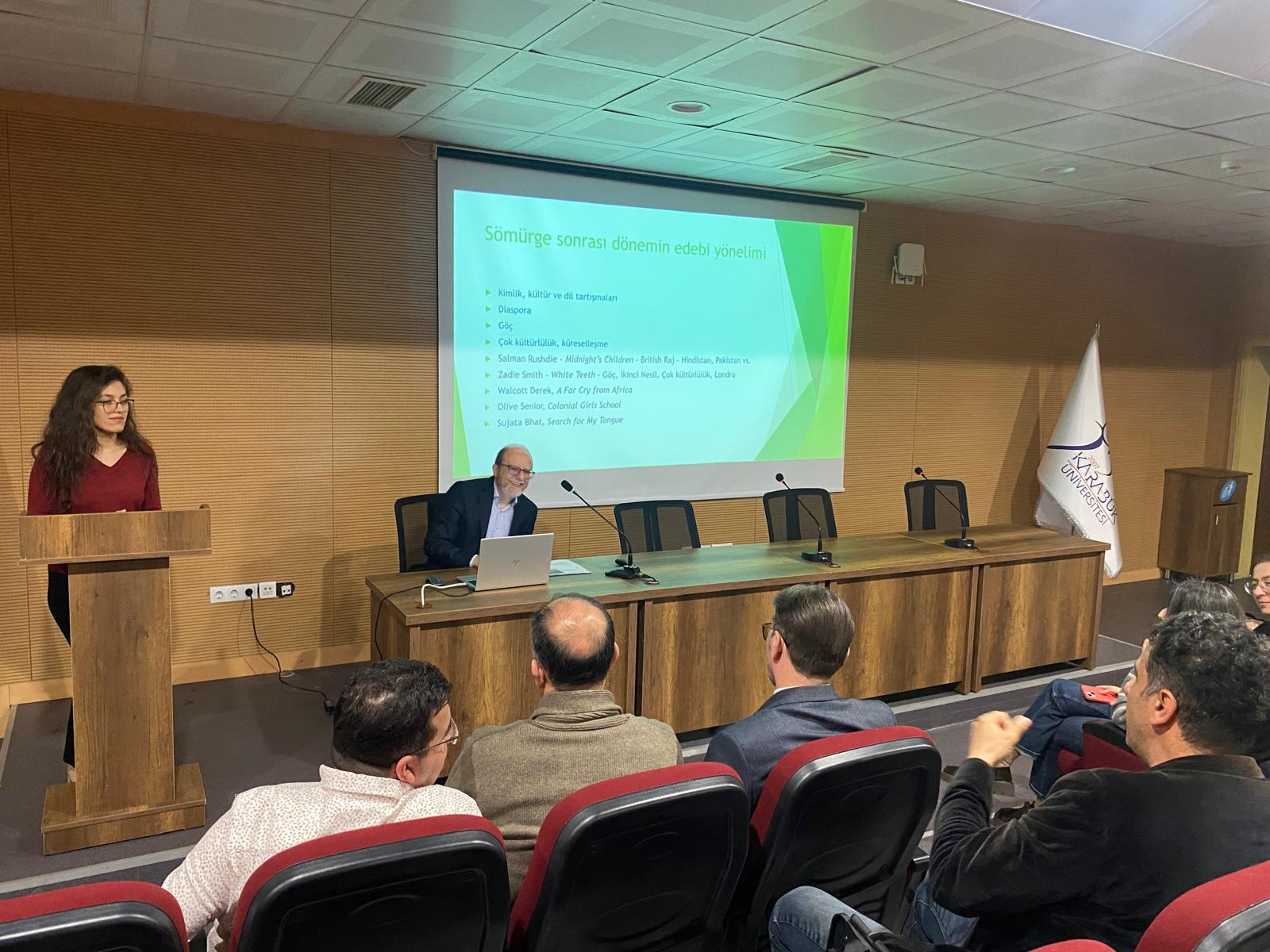
As part of the Social Activity Day organized weekly by the Faculty of Letters at Karabük University, Dr. Mustafa CANLI from the Department of Western Languages and Literatures delivered a lecture titled "Colonial and Postcolonial English Literature". The event attracted significant attention from academics, students, and invited guests.
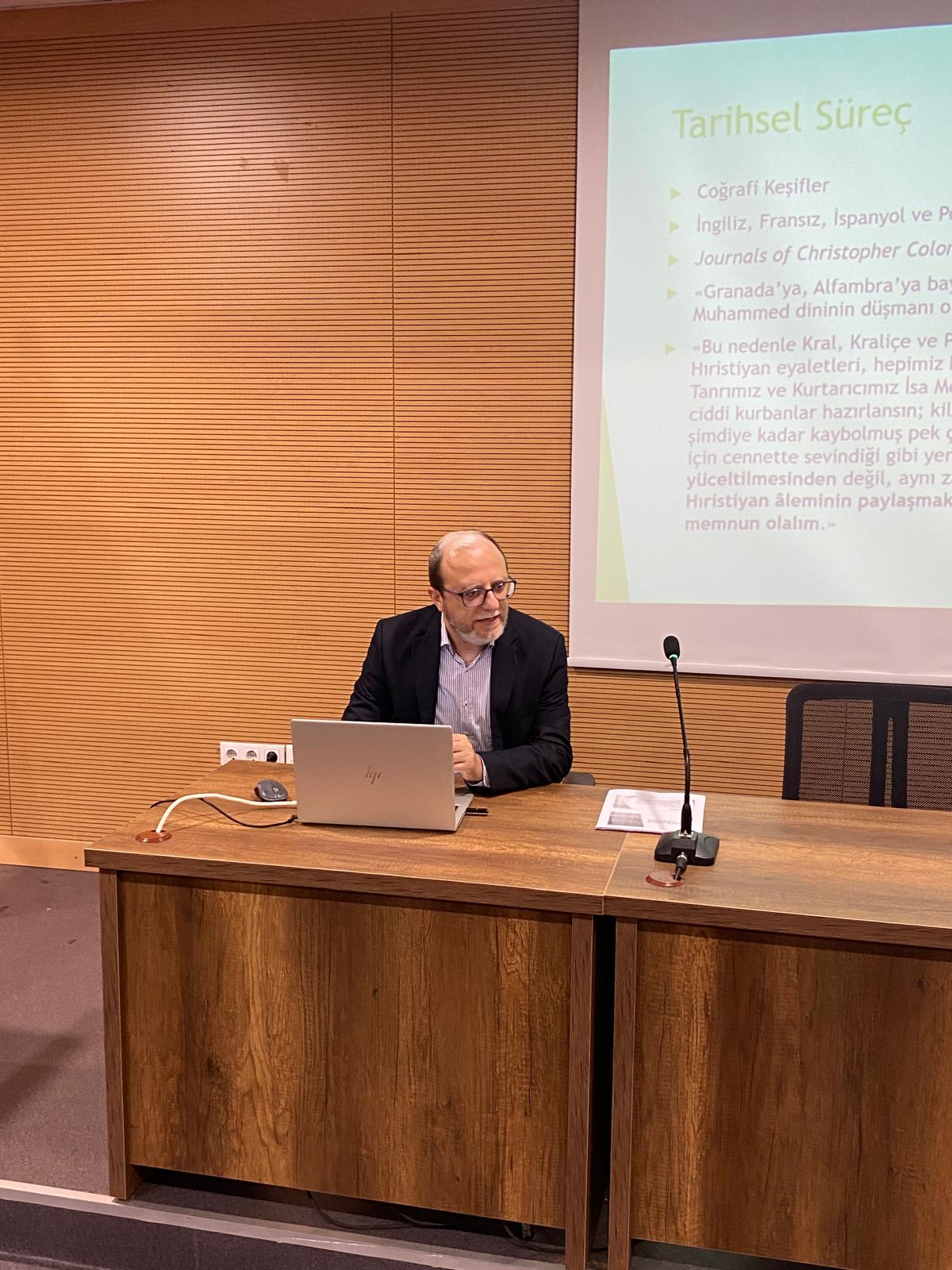
In his presentation, Dr. Canlı examined the historical foundations of colonialism, along with its cultural and political impact during the imperial age. He then outlined the main conceptual framework of postcolonial theory, highlighting the contributions of leading scholars such as Edward Said, Homi K. Bhabha, and Gayatri Spivak.
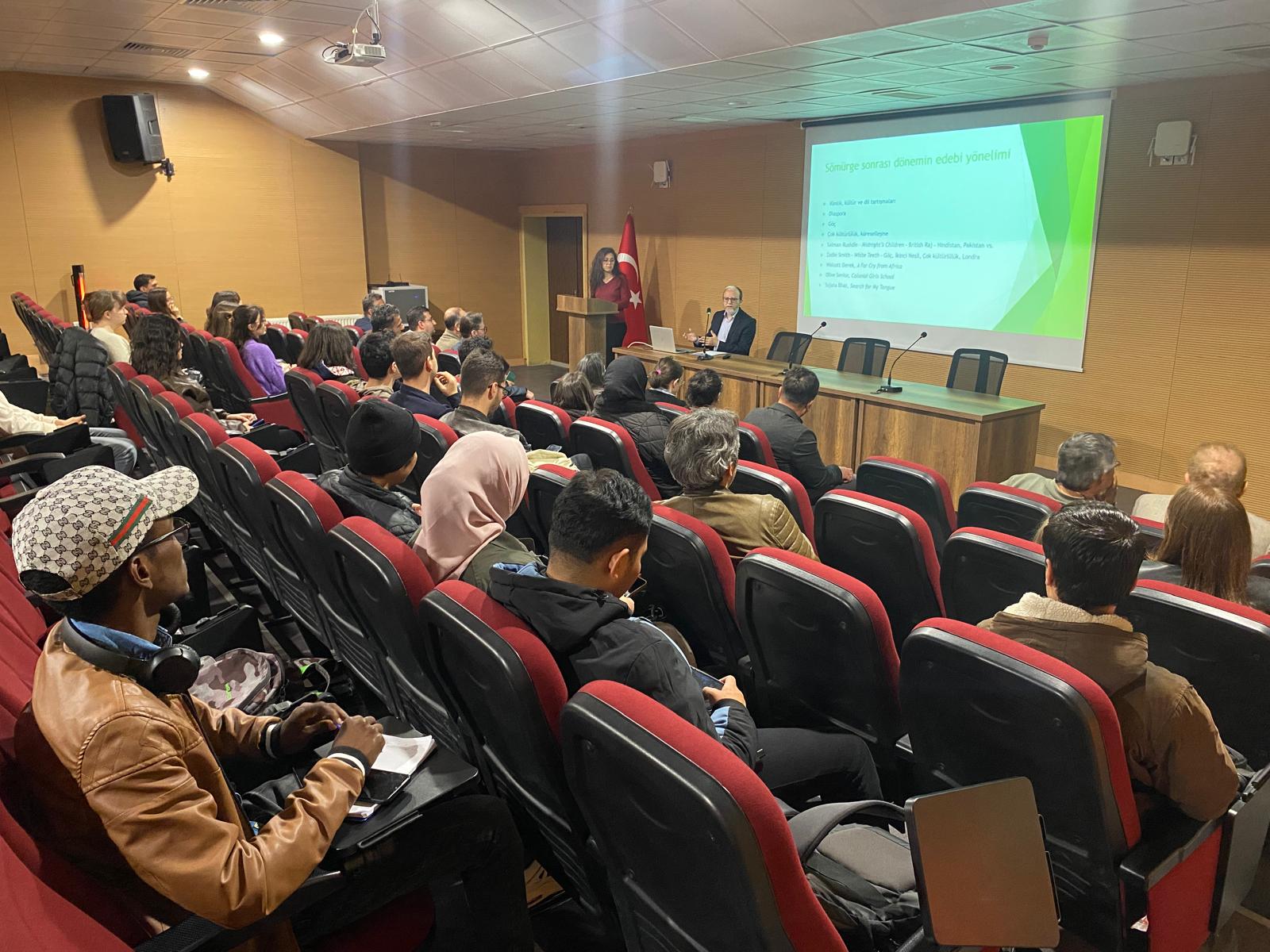
The lecture also emphasized the intersection of literature and theory, providing textual examples from prominent postcolonial authors such as Chinua Achebe, Jean Rhys, and Jamaica Kincaid, to demonstrate how literary narratives engage with and critique colonial history. Key concepts including identity, language, hybridity, and cultural resistance were explored within a theoretical context.
Towards the end of the presentation, Dr. Canlı drew attention to how Turkey might be interpreted from a postcolonial perspective, discussing post-Ottoman identity formations, modernization efforts, and how Turkish literature can be analyzed through the lens of postcolonial critique.
During the Q&A session, students and academics posed questions about the contemporary relevance and applicability of postcolonial theory, fostering a vibrant academic discussion.
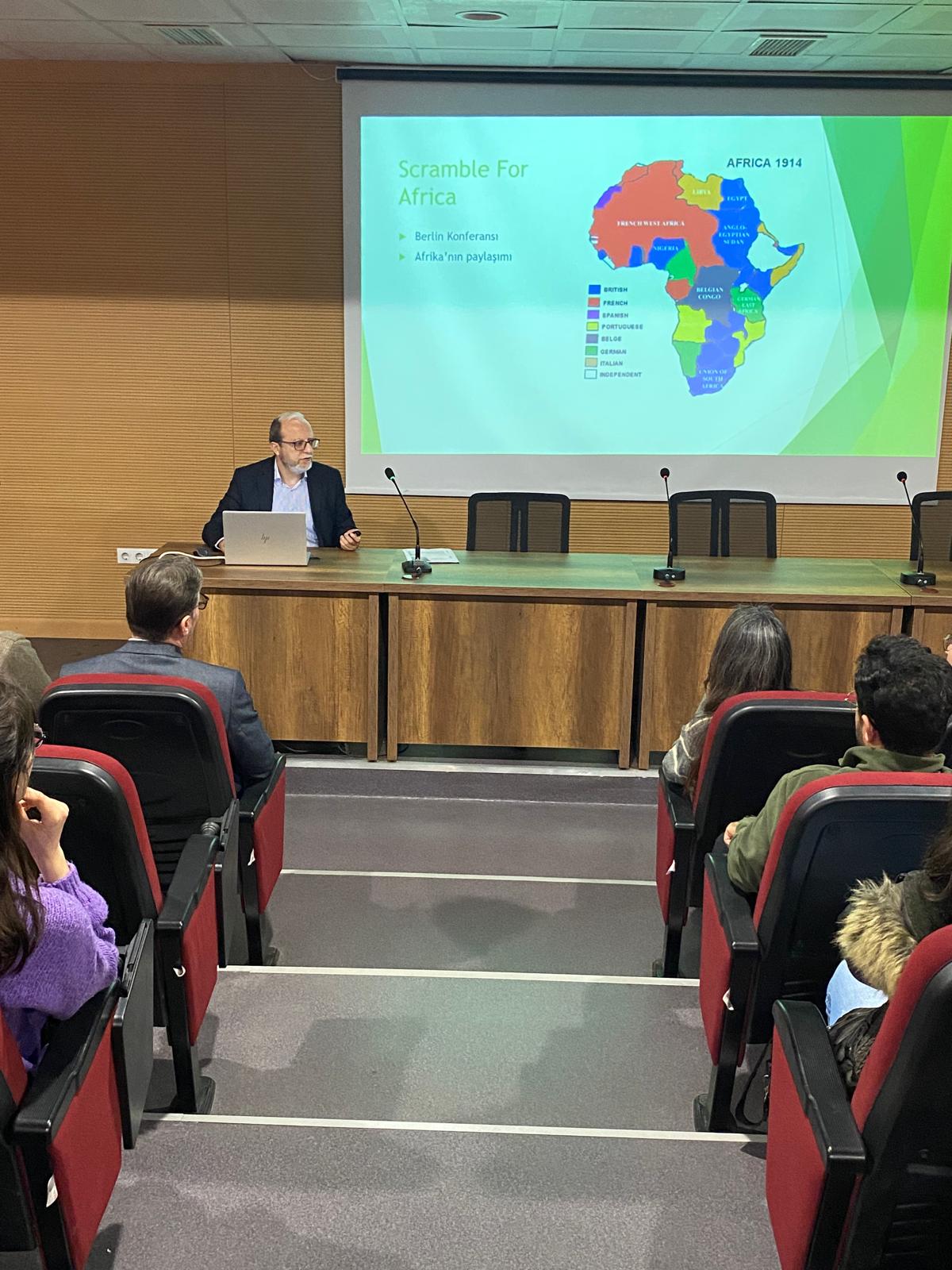
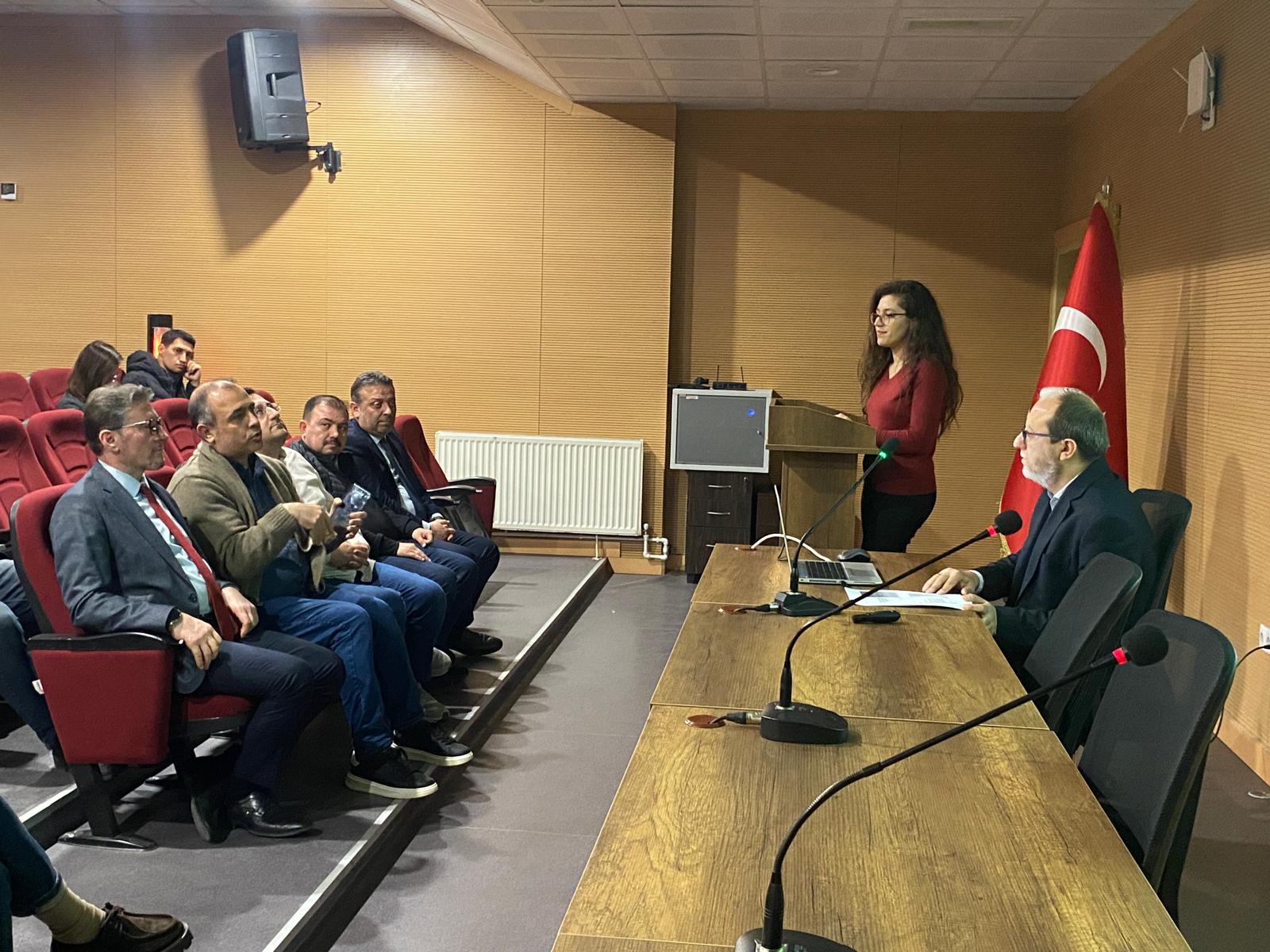
At the conclusion of the event, Prof. Dr. Muhittin KAPANŞAHİN, Dean of the Faculty of Letters, presented Dr. Mustafa Canlı with a certificate of appreciation for his valuable contributions.
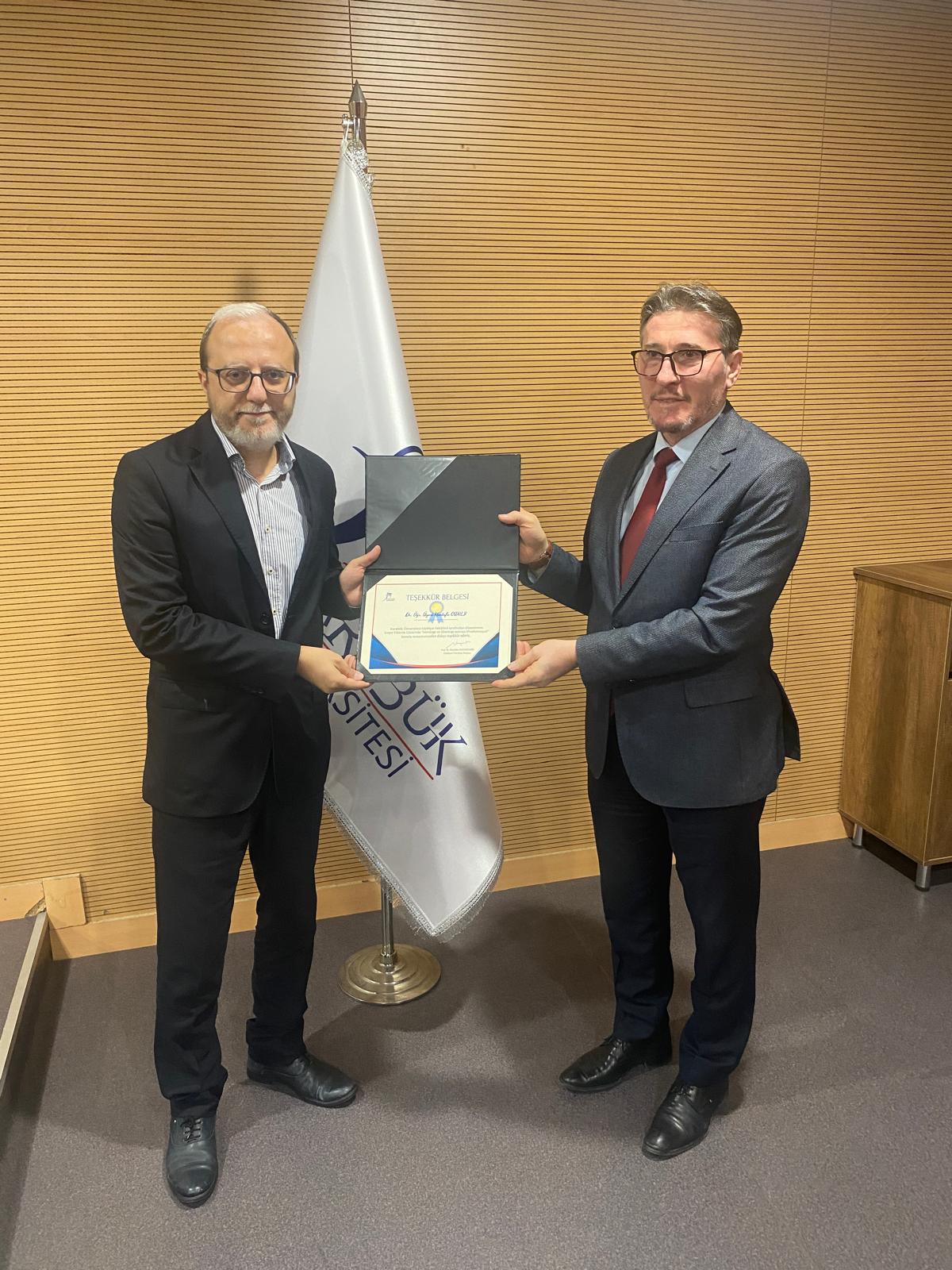
Karabük University Faculty of Letters continues to promote academic awareness through events that engage with literary and cultural theories at both national and global levels.